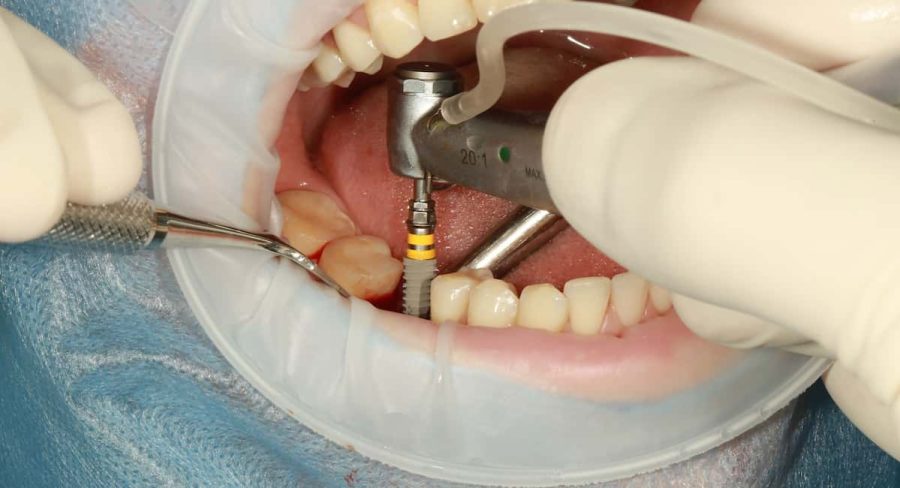
Dental implants procedures have become a revolutionary solution for restoring missing teeth. It offers not just aesthetic benefits but also functional advantages. If you’re considering dental implants, understanding the process from start to finish can help. In this comprehensive guide, we’ll walk you through everything you need to know about dental implants. You will know what to expect before, during, and after the procedure.
Before the Procedure:
Before undergoing dental implant surgery, several essential steps are involved to ensure that you’re a suitable candidate. Here’s how the procedure is planned effectively.
- Consultation: Your journey with dental implants begins with an initial consultation with a qualified dentist or oral surgeon. During this visit, your dentist will assess your oral health, review your medical history, and discuss your goals and expectations.
- Comprehensive Examination: To determine your eligibility for dental implants, your dentist will conduct a thorough examination of your teeth, gums, and jawbone. This may include X-rays, CT scans, or other imaging techniques to evaluate bone density and the condition of surrounding structures.
- Treatment Planning: Based on the examination results, your dentist will develop a personalized treatment plan tailored to your specific needs. This plan will outline the number of implants required, the type of restoration (such as crowns, bridges, or dentures), and the dental implants procedure time.
- Oral Health Preparation: In some cases, preparatory treatments may be necessary before implant surgery. This could involve procedures to address gum disease, tooth extractions, or dental implants procedures’ bone graft to augment deficient jawbone areas.
During the Procedure:
Tooth implants procedures are typically performed in multiple stages and may involve collaboration between different dental specialists.
- Implant Placement: The first stage of the procedure involves surgically placing the dental implants into the jawbone. This is done under local anaesthesia to ensure your comfort. The implants are carefully positioned in the bone to provide stable support for the replacement teeth.
- Osseointegration: After implant placement, a healing period is necessary to allow the implants to integrate with the surrounding bone tissue. This process, known as osseointegration, typically takes several months but is crucial for the long-term success of the implants.
- Abutment Placement: Once osseointegration is complete, a second minor surgery is performed to expose the tops of the implants and attach abutments. These are small connector devices that protrude above the gumline and serve as attachment points for the final restorations.
- Restoration Placement: Finally, custom-made crowns, bridges, or dentures are securely attached to the abutments to complete the implant restoration. Your dentist will ensure that the restorations blend seamlessly with your natural teeth, both in appearance and function.
After the Procedure:
After your dental implants have been successfully placed and restored, proper care and maintenance are essential to ensure their longevity and effectiveness.
- Follow-Up Appointments: Your dentist will schedule follow-up appointments to monitor your healing progress and check the stability and function of your implants. These appointments are crucial for detecting any issues early on and ensuring optimal outcomes.
- Oral Hygiene Practices: Maintaining good oral hygiene is essential for preserving the health of your dental implants and preventing complications such as infection or gum disease. Brushing and flossing regularly, along with routine dental check-ups, are key components of a successful implant maintenance routine.
- Dietary Considerations: In the immediate aftermath of implant surgery, you may need to follow a soft diet to avoid putting undue pressure on the healing implants. Your dentist will provide specific dietary guidelines based on your individual needs and the extent of your surgery.
- Long-Term Care: With proper care, dental implants can last a lifetime, but they require regular maintenance to ensure their continued success. This includes periodic professional cleanings, examinations, and adjustments as needed to keep your implants functioning optimally.
Conclusion:
Dental implants offer a permanent and natural-looking solution for replacing missing teeth. It helps restoring not just your smile but also your confidence and quality of life. By understanding the process of dental implant surgery, you can approach treatment with confidence and achieve the beautiful, functional smile you deserve. If you’re considering dental implants, schedule a consultation with a qualified dental professional today. Explore your options and take the first step toward a brighter, healthier smile.

